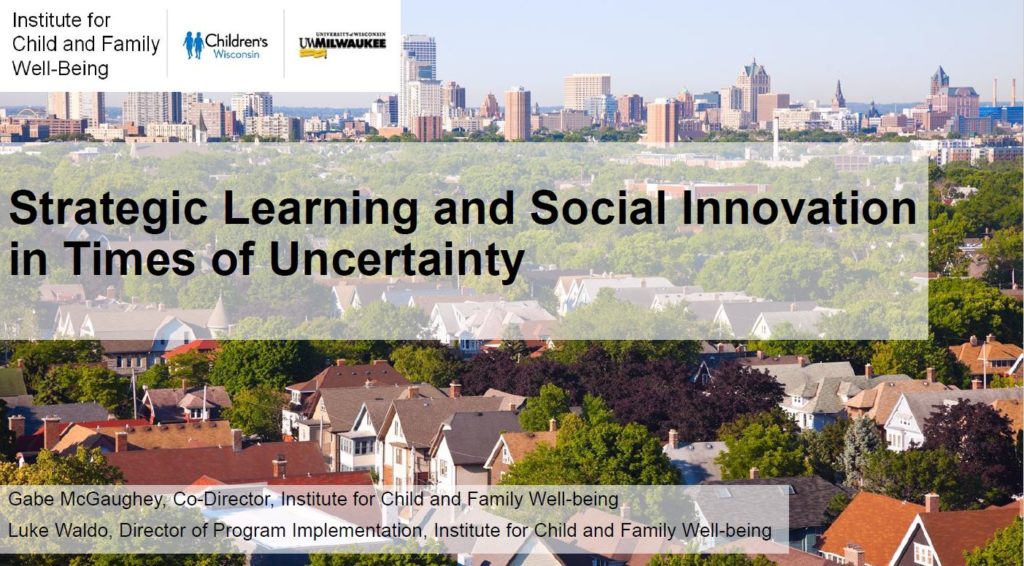 Social innovation within our complex systems, such as child welfare, housing and mental health, demands a difficult balance between trial and error, responsiveness to those directly impacted, and actively sharing learning to build on our progress and failures. Being a learning organization serves multiple purposes: creating institutional memory, supporting just-in-time iteration, and clarifying our hypotheses about our work. Engaging every staff member in these learning practices allows us to make our thinking visible to each other, strengthening our hypotheses and uncovering hidden assumptions. By keeping insights, assumptions, and hypotheses at the forefront of organizational consciousness, our learning practices ensure that the design of any future work is informed by the learning of prior endeavors.
Social innovation within our complex systems, such as child welfare, housing and mental health, demands a difficult balance between trial and error, responsiveness to those directly impacted, and actively sharing learning to build on our progress and failures. Being a learning organization serves multiple purposes: creating institutional memory, supporting just-in-time iteration, and clarifying our hypotheses about our work. Engaging every staff member in these learning practices allows us to make our thinking visible to each other, strengthening our hypotheses and uncovering hidden assumptions. By keeping insights, assumptions, and hypotheses at the forefront of organizational consciousness, our learning practices ensure that the design of any future work is informed by the learning of prior endeavors.
As the ICFW serves as a translational organization, it is essential that our decision-making, planning, learning and dissemination function fluidly and efficiently. While there is no shortage of new innovative approaches to improve child and family well-being, our team must be strategic in identifying, selecting, implementing and testing in order to be effective in each phase of this process within our organizational capacity.
During this webinar on August 20th, ICFW team members Luke Waldo and Gabe McGaughey discussed the following:
- Why Strategic Learning is critical to effective Social Innovation;
- How the ICFW has implemented its Strategic Learning process and the tools that it uses;
- How the ICFW has used Strategic Learning tools to support the Children’s Wisconsin Community Services’ COVID Resilience Plan.
View the recorded webinar here.
Related Resources
From the ICFW:
- Webinar PowerPoint Presentation
- Strategic Learning Practice Brief
- After Action Reviews Practice Brief
- Building an Institutional Memory – ICFW Newsletter Article on Learning Logs
- Human-Centered Design Practice Brief
From Mark Cabaj:
From Greater Good Studio:

